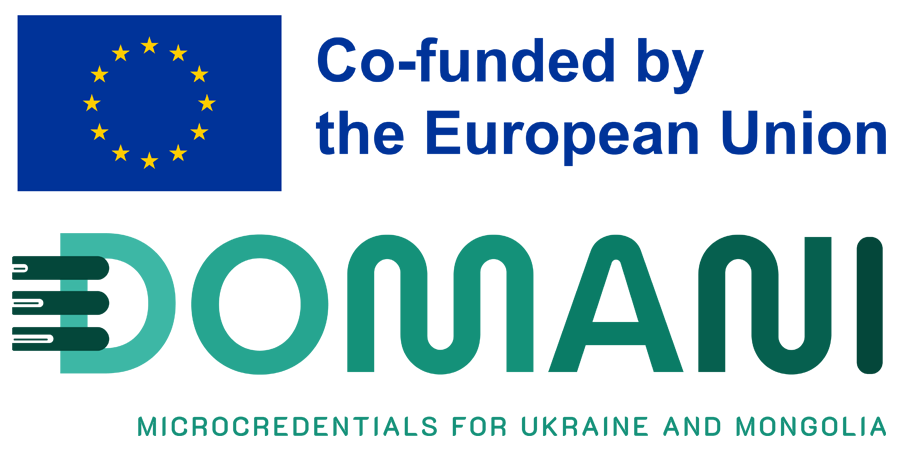Under the project “Developing Micro-Credentials Ecosystems in Ukraine and Mongolia for Competitive and Resilient Green Economies – DOMANI”, which is funded by ERASMUS+ CBHE program, the NUM, the School of Agroecology-Business of the MULS, and the Environmental Auditing Association of Mongolia jointly organized the “Green transition” hackathon at the National University of Mongolia in 3 stages for a total of 4 days on June 15, 19-20, and July 1, 2025.
The objective of the hackathon was to provide students, youth, and lifelong learners with new knowledge on topics such as nature-based solutions, green-blue infrastructure, circular economy, positive and negative ecosystem services, eco-consumers, and urban planning within the general context of the green transition. Within the 5 pre-selected topics, they were got to familiarize the situation of Ulaanbaatar city and proposed innovative ideas and solutions on how to implement the green transition in the selected places.
- I phase on 15 June 2025: Hackathon guidelines, team formation, and topic selection
- II phase on 19-20 June 2025: A total of 26 registered participants were divided into 5 teams. Each team has been chosen 1 pre-selected topic for the hackathon and worked for 2 days on the assigned area for the selected topic.
- Topic 1: Urban green transition, ecosystem service and disservice of urban river system, in the case of the Selbe River, Ulaanbaatar city, Mongolia
- Topic 2: Urban green transition, ecosystem service and disservice of urban river system, in the case of the Tuul River, Ulaanbaatar city, Mongolia
- Topic 3: Green transition, ecosystem service and disservice of urban parks, in the case of Ulaanbaatar Park, Rio Tinto, Mongolia
- Topic 4: Green transition, ecosystem service and disservice of urban park, in the case of Misheel Park, Mongolia
- Topic 5: Green transition, ecosystem service and disservice of ger district in Ulaanbaatar city, Mongolia
- III phase on 01 July 2025: Hackathon judgement day


An international panel of judges, consisting of representatives from 5 institutions (National University of Mongolia, Estonian University of Life Sciences, University of Catania, Center for System Innovation, School of Agroecology and Business, MULS) of 4 countries (Mongolia, Estonia, Italy, Hungary) independently gave scores up to 100 under the 9 indicators to each team. The top 3 winning teams were awarded based on the average score of the judges.
In addition to the three winning teams, 2 participants from Ulaanbaatar and 2 participants from Darkhan, a total of 4 people, were awarded certificate to participate in the international summer school to be held at the University of Catania, Italy in 2026.




More information:
The project website: https://domaniproject.eu/
The Facebook group: https://www.facebook.com/groups/domani
The YouTube channel: https://www.youtube.com/@DomaniProject
Reported by:
Altansukh Ochir, National University of Mongolia
